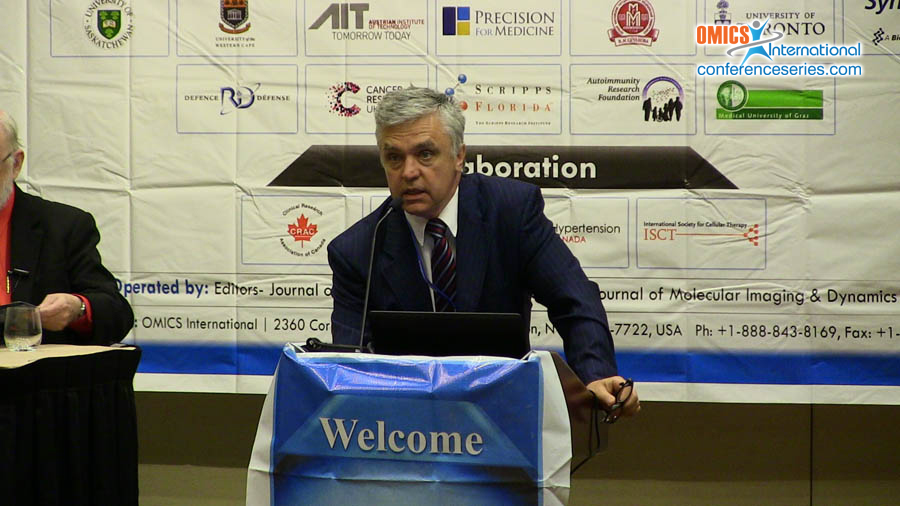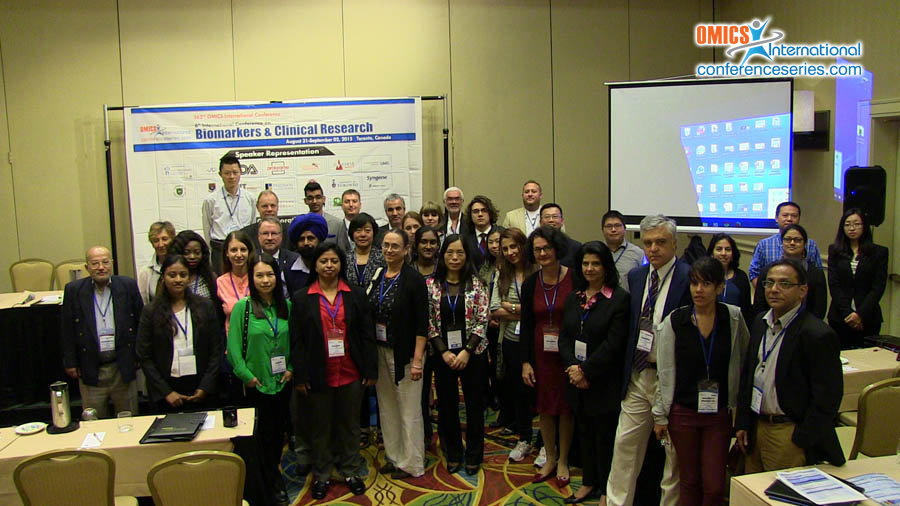
Sergey Suchkov
I.M.Sechenov First Moscow State Medical University, Russia
Title: Tissue-specific autoimmune disorders: Antibody-proteases as a generation of highly informative and unique biomarkers to monitor subclinical and clinical stages of demyelination in multiple sclerosis (MS)
Biography
Biography: Sergey Suchkov
Abstract
Most autoimmune disorders including multiple sclerosis (MS) are preceded by a symptom-free subclinical stage in which the patients can be identified by specific auto Abs. Proteolytic Abs are multivalent immunoglobulins (Igs) endowed with a capacity to proteolyze the antigenic substrate. Abs against myelin basic protein/MBP endowing with proteolytic activity (Ab-proteases) are of great value to monitor demyelination to illustrate the evolution of multiple sclerosis (MS). Anti-MBP auto Abs from MS patients and mice with EAE (SJL and C57BL/6 mice as an animal model of MS) exhibited specific proteolytic cleavage of MBP The activity of the Ab-proteases markedly differs between: (i) MS patients and healthy controls; (ii) different clinical MS courses; (iii) EDSS scales of demyelination to correlate with the disability of MS patients to predict transformation prior to changes of the clinical course. The sequence-specificity of Ab-proteases demonstrates five sites of preferential proteolysis to be located within the immunodominant regions of MBP. Those sites are located within the immunodominant regions of MBP; and two of them falling inside the sequence covering a 81-103 peptide segment and its 82-98 subsegment as well, with the highest encephalitogenic properties both to act as a specific inducer of EAE and to be attacked by the MBP-targeted Ab-proteases very often in MS patients with the most severe (pro-gradient) clinical courses. Meanwhile, sites localized within the frame of 43-68 and 146-170 subsegments whilst being less immunogenic happened to be EAE inducers very rare but were shown to be attacked by Ab-proteases very often in MS patients with moderate (remission-type) clinical courses. In moderate courses, Ab-proteases focus their proteolytic effect on low-immunogenic 43-68 и 146-170 sites but in aggressive cases (progradient courses), the proteolysis was prevailed on highly-immunogenic 81-103 and 82-98 sites. The activity of Ab-proteases was first registered at the subclinical stages 1-2 years prior to the clinical illness. About 24% of the direct MS-related relatives (probands) were seropositive for low-active Ab-proteases from which 38% of the seropositive relatives established were being monitored for 2 years whilst demonstrating a stable growth of the Ab-associated proteolytic activity. Moreover, we see also low-active Ab-proteases (to target 43-68 and 146-170 sites) in persons at MS-related risks (at subclinical stages of MS), and primary clinical and MRT manifestations observed were coincided with the activity to have its mid-level reached. And registration in the evolution of highly immunogenic Ab-proteases to attack 81-103 and 82-98 sites predominantly would illustrate either risks of transformation of subclinical stages into clinical ones, or risks of exacerbations to develop. The activity of Ab-proteases in combination with the sequence-specificity would confirm a high subclinical and predictive value of the tools as applicable for personalized monitoring protocols. Moreover, Ab-proteases can be programmed and re-programmed to suit the needs of the body metabolism. Of tremendous value are Ab-proteases directly affecting the physiologic remodeling of tissues with multilevel architectonics (for instance, myelin). By changing sequence specificity of the Ab-mediated proteolysis one may reach minimizing scales of demyelination. Further studies on targeted Ab-mediated proteolysis may provide a supplementary tool for predicting demyelination and thus the disability of the MS patients.


